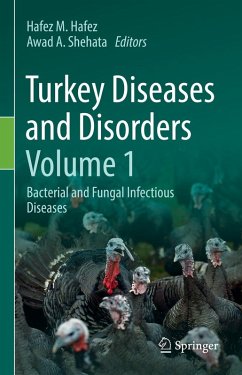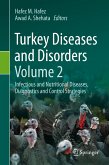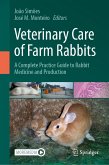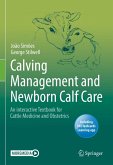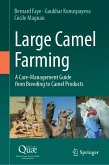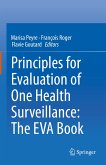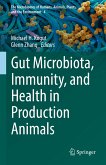Turkey Diseases and Disorders Volume 1 (eBook, PDF)
Bacterial and Fungal Infectious Diseases
Redaktion: Hafez, Hafez M.; Shehata, Awad A.
73,95 €
73,95 €
inkl. MwSt.
Sofort per Download lieferbar

37 °P sammeln
73,95 €
Als Download kaufen

73,95 €
inkl. MwSt.
Sofort per Download lieferbar

37 °P sammeln
Jetzt verschenken
Alle Infos zum eBook verschenken
73,95 €
inkl. MwSt.
Sofort per Download lieferbar
Alle Infos zum eBook verschenken

37 °P sammeln
Turkey Diseases and Disorders Volume 1 (eBook, PDF)
Bacterial and Fungal Infectious Diseases
Redaktion: Hafez, Hafez M.; Shehata, Awad A.
- Format: PDF
- Merkliste
- Auf die Merkliste
- Bewerten Bewerten
- Teilen
- Produkt teilen
- Produkterinnerung
- Produkterinnerung

Bitte loggen Sie sich zunächst in Ihr Kundenkonto ein oder registrieren Sie sich bei
bücher.de, um das eBook-Abo tolino select nutzen zu können.
Hier können Sie sich einloggen
Hier können Sie sich einloggen
Sie sind bereits eingeloggt. Klicken Sie auf 2. tolino select Abo, um fortzufahren.

Bitte loggen Sie sich zunächst in Ihr Kundenkonto ein oder registrieren Sie sich bei bücher.de, um das eBook-Abo tolino select nutzen zu können.
This volume 1 of a two-volume work provides an overview of the current state of knowledge on the most common bacterial and fungal diseases in turkeys. Each chapter is dedicated to a specific infectious disease and provides information on pathogenesis, symptoms and therapeutic strategies. The book also includes a general overview on turkey production. The clear and structured layout allows the reader to refer to it quickly.
This book is an indispensable guide for veterinarians, researchers and professionals working in turkey production and health.
- Geräte: PC
- ohne Kopierschutz
- eBook Hilfe
- Größe: 12.92MB
Andere Kunden interessierten sich auch für
![Turkey Diseases and Disorders Volume 2 (eBook, PDF) Turkey Diseases and Disorders Volume 2 (eBook, PDF)]() Turkey Diseases and Disorders Volume 2 (eBook, PDF)113,95 €
Turkey Diseases and Disorders Volume 2 (eBook, PDF)113,95 €![Production Diseases in Farm Animals (eBook, PDF) Production Diseases in Farm Animals (eBook, PDF)]() Production Diseases in Farm Animals (eBook, PDF)113,95 €
Production Diseases in Farm Animals (eBook, PDF)113,95 €![Veterinary Care of Farm Rabbits (eBook, PDF) Veterinary Care of Farm Rabbits (eBook, PDF)]() Veterinary Care of Farm Rabbits (eBook, PDF)161,95 €
Veterinary Care of Farm Rabbits (eBook, PDF)161,95 €![Calving Management and Newborn Calf Care (eBook, PDF) Calving Management and Newborn Calf Care (eBook, PDF)]() João SimõesCalving Management and Newborn Calf Care (eBook, PDF)73,95 €
João SimõesCalving Management and Newborn Calf Care (eBook, PDF)73,95 €![Large Camel Farming (eBook, PDF) Large Camel Farming (eBook, PDF)]() Bernard FayeLarge Camel Farming (eBook, PDF)89,95 €
Bernard FayeLarge Camel Farming (eBook, PDF)89,95 €![Principles for Evaluation of One Health Surveillance: The EVA Book (eBook, PDF) Principles for Evaluation of One Health Surveillance: The EVA Book (eBook, PDF)]() Principles for Evaluation of One Health Surveillance: The EVA Book (eBook, PDF)81,95 €
Principles for Evaluation of One Health Surveillance: The EVA Book (eBook, PDF)81,95 €![Gut Microbiota, Immunity, and Health in Production Animals (eBook, PDF) Gut Microbiota, Immunity, and Health in Production Animals (eBook, PDF)]() Gut Microbiota, Immunity, and Health in Production Animals (eBook, PDF)137,95 €
Gut Microbiota, Immunity, and Health in Production Animals (eBook, PDF)137,95 €-
-
-
This volume 1 of a two-volume work provides an overview of the current state of knowledge on the most common bacterial and fungal diseases in turkeys. Each chapter is dedicated to a specific infectious disease and provides information on pathogenesis, symptoms and therapeutic strategies. The book also includes a general overview on turkey production. The clear and structured layout allows the reader to refer to it quickly.
This book is an indispensable guide for veterinarians, researchers and professionals working in turkey production and health.
This book is an indispensable guide for veterinarians, researchers and professionals working in turkey production and health.
Dieser Download kann aus rechtlichen Gründen nur mit Rechnungsadresse in A, B, BG, CY, CZ, D, DK, EW, E, FIN, F, GR, HR, H, IRL, I, LT, L, LR, M, NL, PL, P, R, S, SLO, SK ausgeliefert werden.
Produktdetails
- Produktdetails
- Verlag: Springer International Publishing
- Seitenzahl: 232
- Erscheinungstermin: 24. Juli 2024
- Englisch
- ISBN-13: 9783031633188
- Artikelnr.: 71321354
- Verlag: Springer International Publishing
- Seitenzahl: 232
- Erscheinungstermin: 24. Juli 2024
- Englisch
- ISBN-13: 9783031633188
- Artikelnr.: 71321354
- Herstellerkennzeichnung Die Herstellerinformationen sind derzeit nicht verfügbar.
Hafez M. Hafez was Head of the Institute of Poultry Diseases of the Free University in Berlin from 1997 until 2016. He is currently a guest senior professor at the same institute. Hafez gained his Master of Veterinary Science (MVSc) at the Department of Poultry Diseases from Cairo University, Egypt, in 1975. In 1981, he completed his Doctorate Degree (Dr. med. vet.) at the Department of Poultry Diseases, Giessen University, Germany. In 1994, he finished the Habilitation (Dr. med. vet. habil.) thesis at the Department of Poultry Diseases, Munich University, Germany. Dr. Hafez has been recognized as a veterinary poultry specialist since 1982, veterinary microbiology specialist since 1989, and veterinary animal hygiene specialist since 1996. He became the diplomat of the European College of Veterinary Public Health (Dipl. ECVPH) in 2005 and the European College of Poultry Veterinary Science (Dipl. ECPVS) in 2009. He is currently the honorary life president of the World Veterinary Poultry Association (WVPA). He was the past-president of the ECPVS, the chairman of the poultry scientific committee of the German Veterinary Chamber, the chairman of the German branch of the WVPA, the chairman of Working Group 10 (Turkey), and European Branch of World Poultry Science Association (WPSA). Besides, he has been an honorary professor at the University of Hohenheim, Germany, since 1996 and an honorary professor at Alexandria University, Egypt, since 2009. Since 2015, he has been an advisor to the Arab Federation for Food Industries (AFFI). Dr. Hafez' research interest focused on poultry disease diagnosis and control in general and food-borne diseases, management, animal welfare, and hygiene. Awad A. Shehata gained his bachelor's degree in veterinary medicine from the Faculty of Veterinary Medicine, Alexandria University, Egypt, and his license as veterinarian from Ludwig-Maximilians-University, Munich, Germany. In 2005, he obtained a master's degree in avian diseases at the Faculty of Veterinary Medicine, Sadat City University, Egypt. In 2011, he completed his Ph.D. (Dr. med. vet.) in virology at the Faculty of Medicine, Leipzig University, Germany. In 2015, he obtained his Dr. habilitatus (Dr. med. vet. habil.) in bacteriology and poultry diseases at Leipzig University, Germany. In 2022, he was honored with a professor of avian diseases title from Sadat City University, Egypt. Besides his academic work at several universities, Dr. Shehata has six years of industrial experience in vaccine production and the development of alternatives to antimicrobials. He is a certified quality manager, auditor, project manager, European Business Competence License level (EBCL), Good Manufacturing Practice (GMP), FELASA-B and -C, and phytotherapist. Dr. Shehata's research interests lie mainly in developing alternatives or complementary to antimicrobials and diagnostic strategies and studying avian pathogens' epidemiology and molecular epidemiology. Alternatives include developing and evaluating recombinant vaccines, live attenuated bacterial vaccines, inactivated vaccines, probiotics, and prebiotics. Dr. Shehata teaches avian diseases and microbiology courses in English and German at several universities worldwide. He is currently a project leader at the Structural Membrane Biochemistry, Technical University of Munich, Garching, Germany, who studies the analysis and mechanism of actions of natural products, metabolic pathways, and fluxes in various organisms by 13C-labeling experiments and profiling.
Chapter 1. General Overview on Turkeys Production.- Part 1. Bacterial Diseases.- Chapter 2. Colibacillosis in Turkeys.- Chapter 3. Mycoplasmosis in Turkeys.- Chapter 4. Fowl cholera in Turkeys.- Chapter 5. Riemerella anatipestifer infection in Turkeys.- Chapter 6. Salmonella infections in Turkeys.- Chapter 7. Erysipelas in Turkeys.- Chapter 8. Necrotic enteritis in Turkeys.- Chapter 9. Botulism in Turkeys.- Chapter 10. Clostridial Dermatitis in Turkeys.- Chapter 11. Bordetella avium in Turkeys.- Chapter 12. Ornithobacterium Rhinotracheale in Turkeys.- Chapter 13. Avian Chlamydiosis in Turkeys.- Chapter 14. Campylobacter in turkeys.- Chapter 15. Avian tuberculosis in Turkeys. Chapter 16. Brachyspria in Turkeys.- Chapter 17. Staphylococcosis in Turkeys.- Chapter 18. Streptococcus in Turkeys.- Chapter 19. Enterococcosis in Turkeys.- Chapter 20. Pseudomonas infection in Turkeys.- Chapter 21. Other Bacterial Diseases in Turkeys.- Part 2. FUNGAL DISEASES.- Chapter 22. Fungal diseases in Turkeys.
Chapter 1. General Overview on Turkeys Production.- Part 1. Bacterial Diseases.- Chapter 2. Colibacillosis in Turkeys.- Chapter 3. Mycoplasmosis in Turkeys.- Chapter 4. Fowl cholera in Turkeys.- Chapter 5. Riemerella anatipestifer infection in Turkeys.- Chapter 6. Salmonella infections in Turkeys.- Chapter 7. Erysipelas in Turkeys.- Chapter 8. Necrotic enteritis in Turkeys.- Chapter 9. Botulism in Turkeys.- Chapter 10. Clostridial Dermatitis in Turkeys.- Chapter 11. Bordetella avium in Turkeys.- Chapter 12. Ornithobacterium Rhinotracheale in Turkeys.- Chapter 13. Avian Chlamydiosis in Turkeys.- Chapter 14. Campylobacter in turkeys.- Chapter 15. Avian tuberculosis in Turkeys. Chapter 16. Brachyspria in Turkeys.- Chapter 17. Staphylococcosis in Turkeys.- Chapter 18. Streptococcus in Turkeys.- Chapter 19. Enterococcosis in Turkeys.- Chapter 20. Pseudomonas infection in Turkeys.- Chapter 21. Other Bacterial Diseases in Turkeys.- Part 2. FUNGAL DISEASES.- Chapter 22. Fungal diseases in Turkeys.
